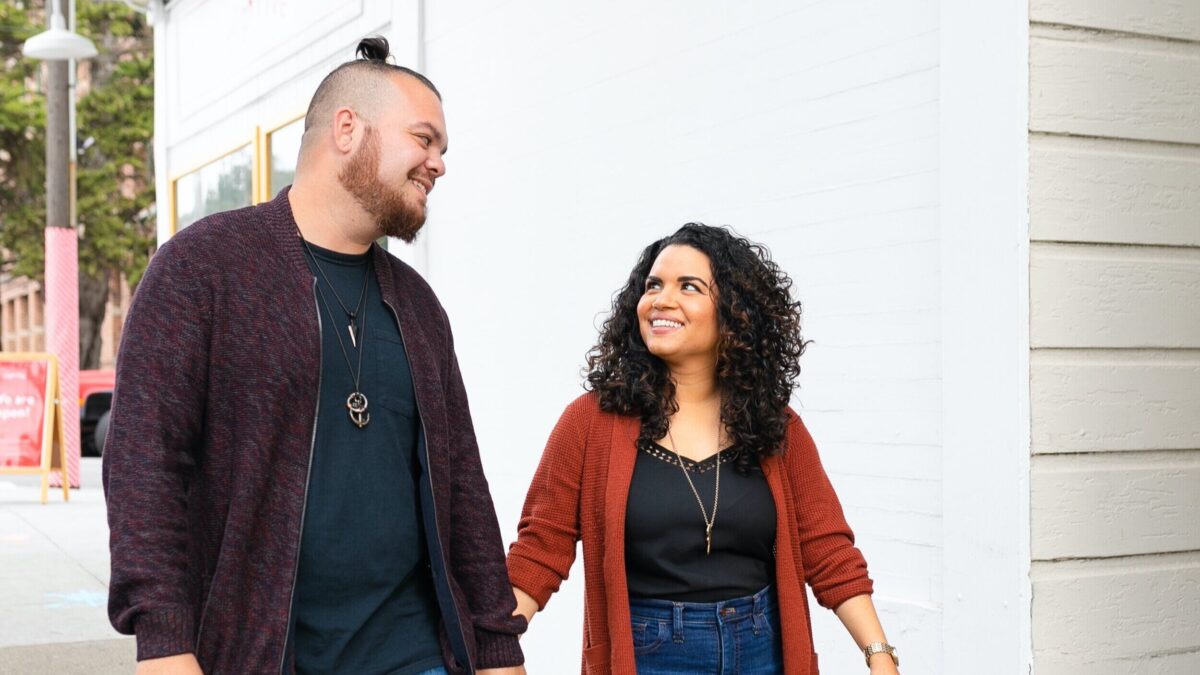She was done writing up her Christmas wish list and was telling me about a dress she wanted. She proceeded to show me a picture of a big, puffy, extravagant dress for her Quinceañera party. Mind you, she’s 12 and this was the first we were hearing about this party that we’re apparently throwing her when she turns 15. However, hearing her dream up about celebrating this future rite of passage while under our care was a clear reminder that our foster daughter feels at home with us and that throwing her a Quinceañera party would be yet another way we can honor her culture and heritage.
We’ve all heard that representation matters, and it really does. It matters for people of color to feel seen, heard, and known by others, to see ourselves represented in different forms of media and creative expression. But what about feeling represented and known within our own families? What does that look like when you’ve been taken away from all that is familiar to you and forced to live with strangers who more than likely have a different cultural and racial heritage than your own?
It’s no surprise that there is racial and cultural disparity in foster care. Research and statistics show that foster care disproportionately affects communities of color and can be said to be deeply rooted in the systemic oppression and racism that has plagued the United States for so long. Obviously, there isn’t anything we can do as foster parents to change the past for this broken system, but we do get to play an important role in changing its future. We get to invest in the lives of future generations, and that is not something to take lightly. One very important way we get to do this is by raising children who are confident in their racial and cultural identity, especially when their heritage is different from our own. It can be argued that foster youth would benefit more from being placed with families that share their racial and cultural heritage, and although there is some truth to that, I believe children ultimately benefit from being placed in loving & caring homes with families that are willing to do the hard work, whether or not they share the same skin color.
Foster youth deal with and experience more trauma, repeated environment changes, and lower levels of social well being than most people. Research shows that a strong cultural identity contributes to “mental health resilience, higher levels of social well-being, and improved coping skills, among other benefits”(Supporting Cultural Identity for Children in Foster Care by Ariella Hope Stafanson). So how can we as foster parents help support strong cultural identity in our foster youth? The following is by no means an extensive list of how we can accomplish this, but merely some friendly suggestions that have surfaced from my years as an immigrant in this country in my formative adult years as well as the 2.5+ year journey in training and becoming a foster parent.
Learn about their heritage and share yours.
Ask questions and listen to their stories. Yes, memories can sometimes bring up emotions and wounds, but ultimately we have found them to be very helpful in bonding and creating healthy attachments.
Be genuinely interested in what they have to say, even if it doesn’t make sense to you.
Our current foster daughter grew up in a Mexican home, and although I’m Latinx myself, our culture and upbringing are/were very different. I like to ask questions about how her family would do things, and my husband and I share stories about our own upbringings as well.
Incorporate their traditions into your home
Sometimes it could be as simple as learning to cook their favorite meal that a family member used to make or making sure that at least once a week you eat something from their culture or family.
My husband, Jayson, is the cook in our home. One of our conversations with our foster daughter was about comfort food and from there, she began to share a dish that her grandmother used to make: sopa de frijoles (bean soup). Jayson took it upon himself to research the ingredients to see if he could make it. Our daughter got very emotional when he told her he would make the soup, as it brought up lots of great memories of her family of origin. Jayson made sure to say that he might not make it like her grandmother, but he would do his best. Our daughter asked if they could make it together because that is what her family did. The soup was really good, according to our daughter.
Pictures speak a thousand words
We tell our kids that as long as they are in our home, they are part of the family. Incorporating their family & traditions could be as simple as hanging pictures from their childhood around your home. This is also a small way to increase that attachment with your youth. We love displaying photos of our kids, whether it’s ones we’ve taken during their time with us or even from their childhood. Recently, our daughter gave us baby and toddler pictures of her. Some of them had her family of origin in them and we chose to hang them in our home to make her feel like all of her is welcome here.
Give them access to their culture
Do our kids have opportunities to hear their language spoken and their music played? Can they attend or participate in cultural holidays? Are they exposed to or allowed to wear cultural dress? Eat their culture’s food? Do they have opportunities to spend time with people that look like them or share their culture?
Hopefully, we can all work towards being able to answer YES to all of these questions. Embracing and loving who they are includes their culture as well.
Do the hard work
Take this as an opportunity for continued personal growth. It starts with us.
If you haven’t already, take cultural awareness training. My husband and I found it to be very helpful and educational.
Examine your own privileges and prejudices. How did these affect you growing up, and how are they affecting you today? The self introspection is hard, but we owe it to our kids to not only model it, but to continuously grow from it.
Doing all this honors God. He wants us to grow and extend who we bring to our metaphoric and literal tables. He challenges us to step out of our comfort zone, because a lot of times He calls us to do hard things, which at the end- are the BEST things.
“Enlarge the place of your tent, stretch your tent curtains wide, do not hold back, lengthen your cords, strengthen your stakes.” Isaiah 54:2
Brenda Aguilar Rice


